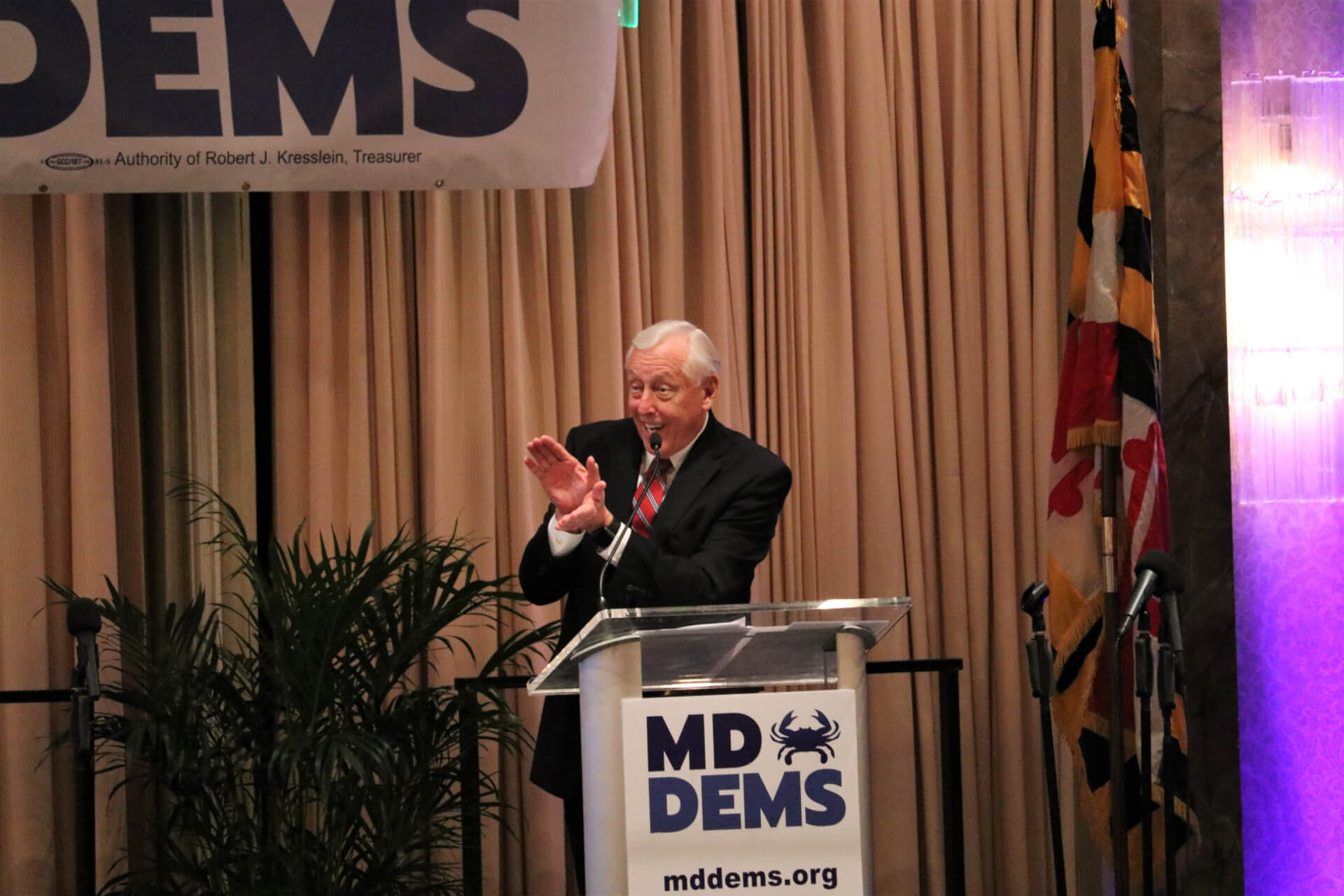
The Redistricting Reform Act of 2020 (Senate Bill 284, introduced at the request of Gov. Larry Hogan) is scheduled to be heard before the Senate Committee of Education, Health, and Environmental Affairs on Thursday at 1 p.m. A companion bill, House Bill 346, will be heard later in the House Committee of Rules and Executive Nominations.
The public is welcome to testify. Though I will be unable to, due to my being a temporary expat in Europe, I am encouraging Democratic members of the EHEA Committee to give serious consideration to their own federal legislators’ push for the passage of H.R. 1 – “For the People Act of 2019,” sponsored by their Maryland colleague, Rep. John P. Sarbanes (D).
The federal bill includes a provision that provides for states to establish independent, non-partisan redistricting commissions. The League of Women Voters of Maryland and Common Cause Maryland have endorsed the federal H.R. 1 proposal.
I firmly believe that the United States Supreme Court decision last June on a Maryland redistricting case, Benisek v. Lamone, could have ended these state legislators’ political flip-flop on the redistricting matter.
Maryland Democrats’ flip-flop was so routine; it showed both sides aimed for political power first, and constitutional theory second.
The leading federal flip-flop legislator could be Rep. Steny H. Hoyer (D), a self-described “serial gerrymander.”
“I’m particularly interested in redistricting reform,” Hoyer, the House majority leader, told CQ Roll Call last month. “I’m very committed to trying to get legislation through that will require a fair redistricting process in every state.”
During the 2016 State of the Union Address, Hoyer applauded when President Obama exclaimed, “We have to end the practice of drawing our congressional districts so that politicians can pick their voters, and not the other way around. Let a bipartisan group do it.”
On his Facebook page, Maryland political analyst Todd Eberly wrote at the time: “So nice of Obama to call for an end to gerrymandering. Too bad there was a reform proposal in Congress when Democrats controlled the House and Senate during his first two years [2009-11]. But Speaker Nancy Pelosi refused to bring the bill to the floor, and Obama made no call for the bill to pass. And why didn’t Obama push for reform? Because he thought Democrats would control the process in 2010, and he wanted Democrats to gerrymander the hell out of the nation.”
In response to Eberly’s posting, former Maryland Del. Rick Weldon (R) added, “He is exactly right. When sitting elected officials make calls for broad-based electoral reform, it’s normally because they don’t see that the status quo is in their party’s interest. They are either on the short-end of the stick, or they think they might soon find themselves there. On this issue, Obama is a hypocrite. His party controlled both houses of Congress in his first two years and could have easily rammed through a reform proposal. They didn’t even bring it up.”
During Obama’s first two years, Hoyer had not agreed to co-sponsor any of four legislative bills that would have enabled each state to establish an independent redistricting commission: Tennessee Democratic Rep. John Tanner bills, H.R. 3025/2009 & H.R. 0453/2011, or California Democratic Rep. Zoe Lofgren bills, H.R. 5596/2009 & H.R. 0590/2011.
And Hoyer is the same Steny H. Hoyer, who was asked by then-Maryland Gov. Martin O’Malley in 2011 to spearhead the map-drawing effort. Hoyer retained a Washington, D.C., consulting shop called NCEC Services, whose clients included the Democratic Congressional Campaign Committee and the Democratic Senatorial Campaign Committee.
The 2011 Governor’s Redistricting Advisory Committee held 12 public hearings around the state. Over 1,000 members of the public attending the meetings and made around 350 comments.
At the final hearing in Randallstown, I asked committee Chairwoman Jeanne Hitchcock to let me be the last speaker, and she agreed, putting me behind 28 other witnesses. Hitchcock told the audience that I had attended all 12 hearings and thanked me “for my citizen participation.” The audience applauded.
Meanwhile, Eric Hawkins of NCES Services used Maptitude Geographic Information System software to make more than 10 possible congressional maps and compared them to proposals submitted by third-party drafters, including mine. Then Hawkins proposed to Congressman Hoyer two redistricting plans. The Maryland Democratic delegation on Capitol Hill chose the second plan, which more strongly predicted Democrats would win Maryland’s 6th Congressional District in an election. On Oct. 4, 2011, O’Malley accepted that plan.
“Now let me make it clear, I am a serial gerrymander,” Hoyer told The Washington Post on March 21, 2017. “As long as North Carolina, Pennsylvania, Ohio, and Florida, Texas, other states that I could name, pursue partisan redistricting, there’s no reason to expect that those of us who are in Democratic states won’t do so as well. But what we ought to have is a national mandate that redistricting is to be done in a fair, balanced way through non-partisan commissions.”
Last June, Gov. Hogan wrote a letter to Hoyer to solicit help on redistricting reform. The governor pled, “I ask that you also support our efforts here in Maryland to create a fair redistricting process, free of political influence.”
Now here is a quick question: Will Rep. Hoyer lobby the Democratic senators on the Education, Health and Environmental Affairs Committee to vote in favor of Gov. Hogan’s redistricting bill?
— HOWARD L. GORRELL
The writer was the first complainant challenging the constitutionality of the apportion of congressional districts of the State of Maryland for the 2010 decade, based primarily on alleged partisan gerrymandering and insufficient consideration of communities of interest. See Gorrell v. O’Malley, 2012 WL 226919 (D. Md. Jan. 19, 2012)




 Creative Commons Attribution
Creative Commons Attribution